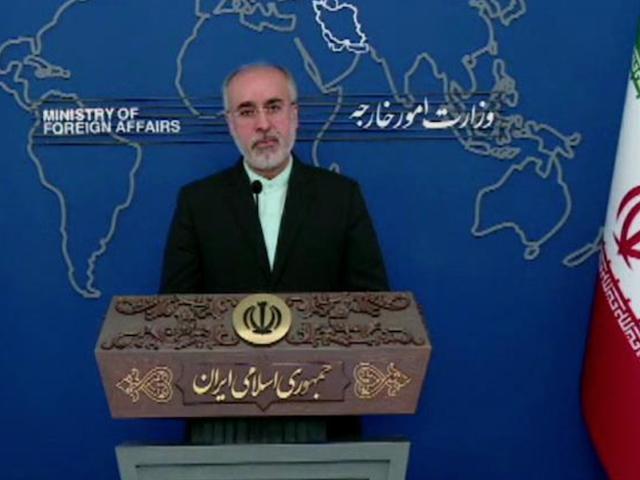In a dramatic escalation of tensions, Iran's foreign ministry has declared it "necessary" to retaliate against Israel for the assassination of prominent Hamas leader Ismail Haniyeh. Nasser Kanaani, the spokesperson for the foreign ministry, emphasized that while Iran is not seeking to escalate tensions, it considers punitive measures essential to address Haniyeh's killing and to stave off further instability. This statement, sourced from reputable outlets like Reuters and The Guardian, underscores the gravity of the situation.
Accusations and Denials: A Web of Blame
The assassination, which took place in Tehran, has yet to be claimed by any party. Nonetheless, both Iran and Hamas have pointed the finger squarely at Israel, accusing it of orchestrating the strike. This development comes on the heels of Iran's firm rejection of U.S. and Arab calls for moderation in its response. The Wall Street Journal reports that the U.S. warned Iran that any substantial retaliatory strike would provoke a response, and suggested that Iran's newly elected President Masoud Pezeshkian could enhance his engagement with the West by exercising restraint.
Despite the Zionists’ horrible savagery, war crimes and genocide in #Palestine as well as cowardly assassinations across the region, strategic balance in the Palestinian territories and the entire region would never shift in favor of the Zionist regime and its illusionary… pic.twitter.com/O2bvRawuqA
— Nasser Kanaani (@IRIMFA_SPOX) August 4, 2024
Diplomatic Fallout and Military Preparedness
Despite these warnings, Iranian leaders have conveyed to Arab diplomats that they are undeterred by the prospect of war. This bold stance has heightened the sense of impending conflict. Israel, for its part, has signaled its readiness to counter any retaliatory actions. Prime Minister Benjamin Netanyahu, in a stark warning, stated, "Israel is now in a multifront war against the Iranian axis of evil. We are ready for any scenario, either defensive or offensive. I repeat to our enemies: We will respond and exact a heavy price for any act of aggression against us, from any arena."
The Incident: Bomb or Missile?
The details surrounding Haniyeh's assassination are shrouded in controversy. According to The Wall Street Journal, Haniyeh was killed by a bomb while staying in a guesthouse of the Islamic Revolutionary Guard Corps (IRGC) in Tehran. However, Iran and Hamas dispute this account, asserting instead that Haniyeh was struck by a missile.
MONDAY, 05-08-2024
— Shiri_Sabra (@sabra_the) August 5, 2024
Iranian Foreign Ministry spokesman Nasser Kanaani: "Tehran is not interested in escalating regional conflicts, but it is necessary to punish Israel" pic.twitter.com/UlscVMxxmC
A Broader Context
This incident is set against a backdrop of increasing volatility in the region. Iran's resolve to retaliate and Israel's preparedness for conflict suggest a dangerous path ahead. The assassination of a high-profile figure like Ismail Haniyeh could trigger a series of retaliatory measures, potentially drawing in other regional actors and escalating into a broader conflict. Kanaani himself has been an outspoken critic of Israel, often posting videos containing out-of-context clips to prove his anti-Israel point, and even including carefully edited Rabbinical speeches to validate his allegations about Israel and Zionism.
ZIONIST Apartheid & Racism pic.twitter.com/guQQXGD4ig
— Nasser Kanaani (@IRIMFA_SPOX) August 3, 2024
Global Reactions
The international community watches with bated breath. The U.S.'s call for de-escalation reflects a broader concern for stability in the Middle East. However, Iran's defiance and Israel's uncompromising stance indicate that diplomatic resolutions may be hard to come by.
As tensions mount, the assassination of Ismail Haniyeh could be a flashpoint for a larger confrontation between Iran and Israel. Both nations are entrenched in their positions, with Iran poised for retaliation and Israel ready to defend its interests vigorously. The world awaits the next move in this high-stakes geopolitical chess game.


